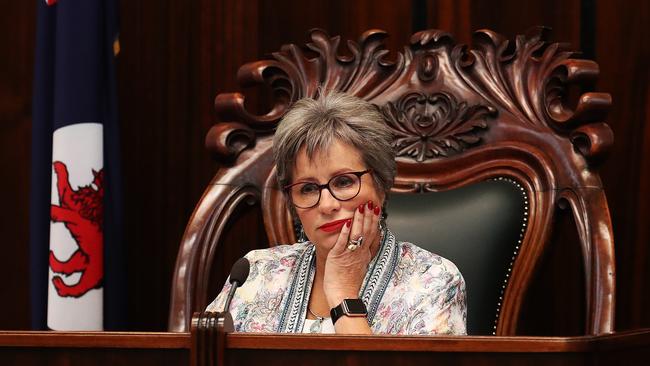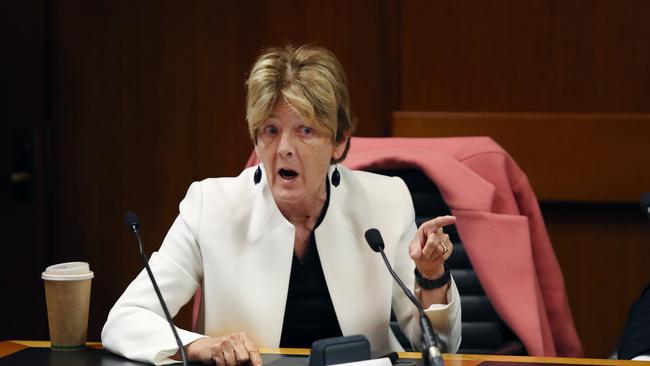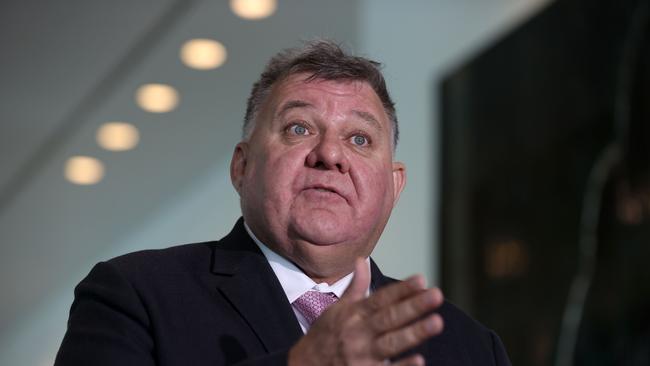Liberal rebels spurn party that brought them to political dance
This week has seen two defections within the Liberal Party which have altered the governance of Tasmania and NSW.
Friendship is one thing. Loyalty is another. The men and women who win preselection to represent their party in parliament and win a seat are expected to remain faithful to the party that chose them to represent it in parliament. Most do. Some do not.
This week there have been two defections within the Liberal Party that have altered the governance of Tasmania and NSW.
In Tasmania, the Hare-Clark electoral system (similar to that which prevails in Senate elections) makes it difficult for a party to win a majority of votes in its own right. At the 2018 election, the Will Hodgman-led Liberal Party obtained a majority of the two-party vote and entered the House of Assembly with 13 seats out of a possible 25.
This was a significant achievement — especially since this was the Liberal government’s second term. But the good times did not last long.
Sue Hickey, who had been mayor of Hobart, won a seat in the House of Assembly on the Liberal Party ticket. It turned out that, although a newcomer, Hickey wanted a ministerial position. This was refused by Hodgman. Hickey then thought she was the best equipped for the position of Speaker and obtained the job on her own vote backed by Labor and the Greens.
As Speaker, Hickey made it clear that she would act as an independent (without formally quitting the Liberal Party) and would support the Hodgman government with respect to votes concerning confidence and supply. Last week, Tasmanian Peter Gutwein (who took over following Hodgman’s retirement) advised Hickey that she no longer had the support of the Liberal Party and would not be preselected for the next election.

Whereupon Hickey formally resigned from the Liberal Party, throwing the Gutwein government into minority status — with Labor, the Greens and one independent holding 13 out of 25 seats. So Hickey, who was elected as a Liberal, has placed the Liberal government into minority status without consulting those who elected her. This was a factor in Gutwein’s decision, announced on Friday, to call an election for May 1.
This week NSW Premier Gladys Berejiklian, who heads the most successful state or territory government with respect to the handling of the economy and its non-panic approach to COVID-19, also experienced the defection of a sitting parliamentarian. Catherine Cusack, who has held a seat in the Legislative Council since 2003, said she no longer would attend Liberal Party meetings in parliament and “will no longer be listening to the (Berejiklian) government”.
Cusack was last elected in 2019 on a Liberal Party ticket. In short, if she had not attained Liberal preselection, she would not be in parliament. But just over one year into an eight-year term, she has turned her back on colleagues and electors. Cusack’s defection will make political life more difficult for the Berejiklian government in the NSW upper house.
What the defections of Hickey and Cusack have in common is that neither parliamentarian stated a clear case as to why they were so opposed to the Gutwein and Berejiklian governments as to warrant their decisions to no longer regard themselves as part of the Liberal parliamentary party.

Then there is Craig Kelly, the federal member for Hughes. He resigned from the Liberal Party on February 23, placing Scott Morrison’s government close to minority status and having to rely on the support of the Speaker in the case of a tied vote. Kelly would not have won preselection for his seat in the 2019 election without the Prime Minister’s support. And now he has dumped on his party during a time of pandemic — without a clear reason.
Through the years, all political parties have their defectors. It’s just that on the Labor Party side they tend to involve serious divisions over huge issues. In 1916, Labor split over conscription during World War I. In 1931 it split over economic policy to handle the Depression. And in 1955 Labor essentially split over how to handle the communist threat during the Cold War. At the time, some ALP parliamentarians resigned while others were expelled. But it was over a matter of principle as they perceived it.
The Liberal Party, essentially created by Robert Menzies in 1944, has never experienced a split. Yet many of its leaders since Menzies have become publicly disillusioned after being defeated in a partyroom ballot or losing an election. The list includes former prime ministers John Gorton, Malcolm Fraser and now Malcolm Turnbull. These days Turnbull and former Liberal leader John Hewson are the go-to commentators when journalists hostile to the Morrison government want a comment on contemporary politics.

Yet none of this quartet would have been as successful as they became without the endorsement of the Liberal Party organisation and the rank-and-file supporters who raised money, distributed flyers and stood at polling booths on election day.
It’s true that some Labor leaders have turned on the party, most notably Mark Latham, who is now a One Nation member in the NSW Legislative Council. But Latham found himself in profound disagreement with contemporary Labor on policy issues. Moreover, unlike Gorton, Fraser and Turnbull, Latham never achieved the status of occupying the Prime Minister’s office.
Towards the end of his life, Menzies privately told anti-communist activist BA Santamaria that in the early 1970s he voted on occasions for the anti-communist Democratic Labor Party, having become disillusioned with Liberal leaders such as Gorton, William McMahon and Billy Snedden. But the DLP gave its preferences to the Coalition and Menzies did not give interviews to the ABC bagging the Liberals.
No one expects modern-day Liberals to like all their colleagues. But Liberal supporters have a right to expect that the candidates they have chosen will be loyal to the party’s cause.
Gerard Henderson is executive director of the Sydney Institute. His Media Watch Dog blog can be found at theaustralian.com.au.




Former Labor prime minister Paul Keating is reported to have declared that if you want a friend in politics get a dog. There are few real friendships in politics since nearly everyone is competing to become prime minister or opposition leader or hold cabinet or shadow cabinet positions.